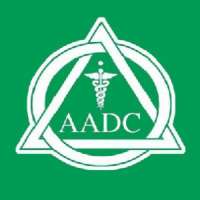Airway Analysis
With the endorsement of the ADA, screening and treating sleep-related breathing disorders has become a standard within the practice of dentistry. At Love Your Smile Dentistry, Dr. Ellis will ask some questions to determine if further analysis of your airway is needed using a CBCT imaging during your comprehensive examination at your first visit.
HOW CAN I DETERMINE IF I MAY HAVE AIRWAY ISSUES?
MOUTH BREATHER - Are you aware being a mouth breather
Mouth breathing is considered dysfunctional breathing, because it bypasses the critical physiologic benefits of nasal breathing. Through the nose, air is humidified, warmed, sterilized/anti-microbial effect of nitric oxide produced in the para-nasal sinuses, and the breathing rate is controlled to help maintain an optimum carbon dioxide-oxygen ratio in the bloodstream, known as the Bohr Effect. Mouth breathing eliminates the possibility of ideal physiologic breathing, allowing dirty air containing microbes, pollutants, pesticides, smog, allergens, pollen, and spores, and other things to pass through the mouth straight to the lymphoid tissues of the adenoids and tonsils. This can result in both inflammation and infection in the posterior throat.
FORWARD HEAD POSTURE - Does your neck bother you and do you find yourself in a forward head posture?
Mouth-breathing Syndrome is characterized by significant nasal obstruction, whereby an effort to overcome this resistance increases the work of accessory muscles of inspiration. Furthermore, forward head posture, common among mouth breathers, facilitates the air to enter the mouth which can lead to a deterioration of the pulmonary function. Chronically, the hyperactivity of the neck muscles may be associated with cervical changes that, as a result, can influence temporomandibular disorders (TMD) and spine cervical disorders.
DAYTIME SLEEPINESS - Do you feel tired and sleepy during the day?
Failure to spend adequate time in deeper sleep stages produces non-restorative sleep and its consequences: daytime fatigue and sleepiness.
SNORE - Are you aware of snoring in your sleep
Snoring is a sign of airway blockage as the tissues of the soft palate vibrate against the posterior wall of the pharynx. This can be accompanied by the tongue dropping back as well. Approximately 1 in 3 snorers also suffers from obstructive sleep apnea.
TONGUE-TIE - Do you have a tongue-tie or any tongue restrictions affecting sucking, swallowing or speech?
A short lingual frenulum has been associated with difficulties in sucking, swallowing and speech. The oral dysfunction induced by a short lingual frenulum can lead to oral facial dysmorphosis, decreasing the size of upper airway support. Progressive change increases the risk of upper airway collapsibility during sleep.
CHRONIC COUGH - Do you have a chronic cough, sore throat, or difficulty swallowing?
Chronic cough and similar throat issues are highly correlated with Sleep Apnea and Gastroesophageal Reflux Disease (GERD), which often occur together. It's reported that 80% of the 60 million Americans who have been diagnosed with GERD report worse symptoms at night, and 3 in 4 wake up routinely from sleep.
NASAL CONGESTION - Do you experience frequent nasal congestion or difficulty breathing through your nose?
Nasal congestion due to allergies from food or environment, nasal stenosis, deviated septum, nasal polyps, turbinate enlargement, and/or acute and chronic sinusitis, will affect breathing and often cause a conversion to dysfunctional mouth breathing. Eustachian tube blockage can produce a fullness feeling in the ears.
DEVIATED SEPTUM - Are you aware of having a deviated septum or nasal deformity or damage?
A deviated septum can be present from birth, be the result of poor maxillary development, or can occur after injury. It can contribute to difficulty breathing through the nose, nasal congestion, recurrent sinus infections, nosebleeds, difficulty sleeping, snoring, sleep apnea, headaches and post-nasal drip.
SLEEP APNEA - Have you been diagnosed with Sleep Apnea or been observed to stop breathing in your sleep?
Obstructive Sleep Apnea is a very serious breathing disorder that has significant systemic effects due to mechanical collapse of the posterior throat airway. An apneic event occurs when breathing stops for 10 seconds or longer accompanied by a decline in oxygen saturation in the bloodstream. During sleep, multiple events in intervals of several minutes or longer can mimic the experience of choking and stimulate activation of the Sympathetic Nervous System, Fight or Flight response. Stress hormones, including cortisol, are released into the bloodstream, producing an acute excitation of the heart rate. The increase in blood flow is an attempt to deliver needed oxygen throughout the body. Chronic elevated cortisol levels in the blood can produce several deleterious effects including increased blood pressure, cardiac arrhythmia, insulin resistance, and leptin/ghrelin imbalance. An increased hunger drive can be stimulated by imbalances between leptin and ghrelin.
Central Sleep Apnea (CSA) is a CNS disorder in which the respiratory center in the brain fails to transmit a signal to the body to inhale. CSA frequently occurs among people who are seriously ill from other primary diseases that cause this condition: chronic heart failure, diseases of and injuries to the breathing control centers in the brainstem, Parkinson's disease, stroke, kidney failure, and even severe arthritis with degenerative changes to the cervical spine and base of the skull. It is seen among users of opiates. Idiopathic CSA is a description used when the cause is unknown.
Mixed Apnea describes the simultaneous occurrence of both OSA and CSA. Click here to learn more about sleep apnea.
POOR SLEEP QUALITY - Do you sleep poorly or wake up during the night?
Breathing disorders during sleep disrupt the normal sleep pattern. Stimulation of the Sympathetic Fight or Flight response to decreased oxygen levels, the release of steroid hormone cortisol from the adrenal glands, and increases in heart rate are all involved in producing arousals from deeper to lighter sleep levels or even waking up. Frequent urination at night is a common side effect.





